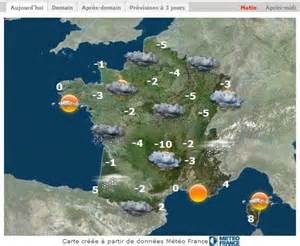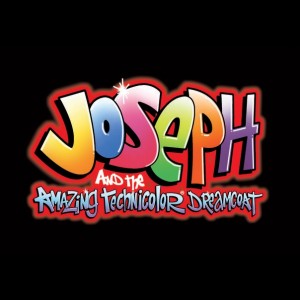Primary 4 have been learning all about the weather in French. This term they will use their language skills to create a weather podcast that will be available on twitter each week. They have to identify the correct language to describe the date, area and weather for each podcast.
Author: dvadmin
Science
Primary One’s Learning
Growing Up
This term Primary One will be learning about Growing Up. We have been discussing what we would like to be when we grow up and how the skills we learn in school will help us to achieve this. Primary One have looked at the milestones in our lives, working cooperatively to compare and record the differences. We have linked our topic to our learning in Science where we developed our understanding of the human life cycle. Primary One are also looking at the development of our skeleton and the ways in which our muscles work and how this changes during our lives. We have enjoyed locating the different type of joints in our bodies and how these work to help us move, comparing the movement to different points in the human life cycle. Our next step is to transfer our learning of the human life cycle and apply it into learning about the life cycle of different animals.
Literacy
Primary One will be developing their literacy skills even further this term. We will be working with our Primary Five Reading Buddies to develop our questioning skills and fluency in reading, we will be using an online interactive resource to help us develop our comprehension skills as well as continuing to work effectively in class in our literacy stations. This term our focus in writing is on our use of connectives to develop our sentences . Primary One will also have opportunity to self and peer assess the correct use of punctuation in their writing. We are furthering our spelling and blending skills by looking at and applying different spelling rules.
James and The Giant Peach
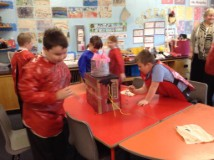
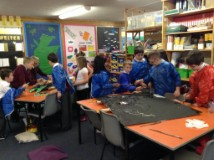
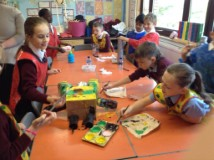 Our book study this term is James and the Giant Peach by Roald Dahl. Pupils have been learning to read for information in order to describe the setting and atmosphere. We have used the information to create accurate characters using recycled materials. This term they will continue to read for understanding and learn to justify their opinions using evidence.
Our book study this term is James and the Giant Peach by Roald Dahl. Pupils have been learning to read for information in order to describe the setting and atmosphere. We have used the information to create accurate characters using recycled materials. This term they will continue to read for understanding and learn to justify their opinions using evidence.
Food and Farming
This week we started our new theme, Food and Farming. We began by learning about the different types of Farming in Scotland and the food that they produce. We started to brainstorm why we think Farming is important to Scotland. From reading through some information we decided that we thought Farming was important because it brought in lots of money to Scotland; it gave lots of people jobs; it helps us source fresh, local ingredients and it helps to bring Tourists to Scotland.
GIRFEC – Children and Young People (Scotland ) Act 2014
As part of our national strategy to Get It Right For Every Child (GIRFEC), please see attached a leaflet updating all parents/carers on what to expect with the introduction of legislation Children and Young People Act 2014.
The Scottish Government are keen to keep parents abreast of what is happening and have produced a short leaflet, telling parents/carers about the consultation, inviting them to get involved if they wish and letting them know a bit more about GIRFEC and the Act.
Please click on the link to access the leaflet: http://www.gov.scot/Resource/0046/00469648.pdf
Rights Respecting School Committee
Some Commonly Asked Questions:
Why are children learning about their rights in school and what is meant by ‘rights’?
In signing the UNCRC all Governments have a responsibility to make both children and adults aware of these rights. Schools are the best place to reach the vast majority of children.
These ‘rights’ are not the same as ‘wants’. Rights are the basic human needs and values that apply or should apply to everyone, for example:
The right to water
The right to an education
The right to nutritious food
The Unicef website outlines the articles in more detail and can be found at: www.rrsa.unicef.org.uk
How does teaching about children’s rights fit in with the curriculum at St. David’s?
Learning about rights naturally lends itself well to many curricular areas, including:
Literacy, Social Studies, R.E, Science and Health and Wellbeing. All our teaching and support staff have received training on how to incorporate rights based lessons into their planning.
Does the UNCRC talk about responsibilities?
Yes, with rights come responsibilities.
The children learn that they have the responsibility to respect the rights of others. These matching rights and responsibility statements are created by the children and then used to develop in each class their Class Charter.
What about children’s respect for the rights of others?
Research has shown that when children are taught in school about their rights and responsibilities under the UNCRC, they are more respectful of the rights of others.
Children who have learnt about their rights show:
A better understanding of what it means to have rights and responsibilities
More positive attitudes to school
Better relationships with their class
There is also a Whole School Charter in place which was written in collaboration with the children. It includes the following Rights and Responsibilities:
Rights
1. We have the right to the best education possible with staff who will be good role models and give us great opportunities to learn.
2. We have the right to have our thoughts and beliefs respected and to learn about other religions and cultures.
3. We have the right to be kept safe in school and benefit from a productive learning environment.
4. We have the right to develop our talents and personality to the full.
5. We have the right to relax and play with friends and join in a wide variety of activities.
Responsibilities
1. We have the responsibility to try our best in everything we do and to make the most of every opportunity to learn.
2. We have the responsibility to respect the beliefs and opinions of others.
3. We have the responsibility to act sensibly and safely all the times and to treat our school environment and peers with respect.
4. We have the responsibility to try our best to develop our personality and special talents.
5. We have the responsibility to be a kind friend as well as to include others, respect playtime equipment and make the most of school clubs.
At St.David’s we have UNICEF ambassadors, who work hard to help others in the school learn all about the important work of UNICEF. Our ambassadors are selected from Primary 1 – Primary 7 and over the course of the year will participate in regular meetings, leading assemblies and raising awareness of UNICEF inititives.
If you can support our school’s efforts please contact Miss Kelly to discuss further.
Joseph and the Amazing Technicolour Dreamcoat
Primary 5, 6 and 7 are excited to announce that Joseph and the Amazing Technicolour Dreamcoat is their Interdisciplinary Learning Theme this term. They will be learning and applying skills across the curriculum from Expressive Arts through to Literacy and Numeracy! Watch this space for future updates of our Learning!
Performances take place on Wednesday 25th and Thursday 26th March 2015
Go, go, go Joe!
Newsletter January 2015
Please click on the link to view the January 2015 Newsletter5
